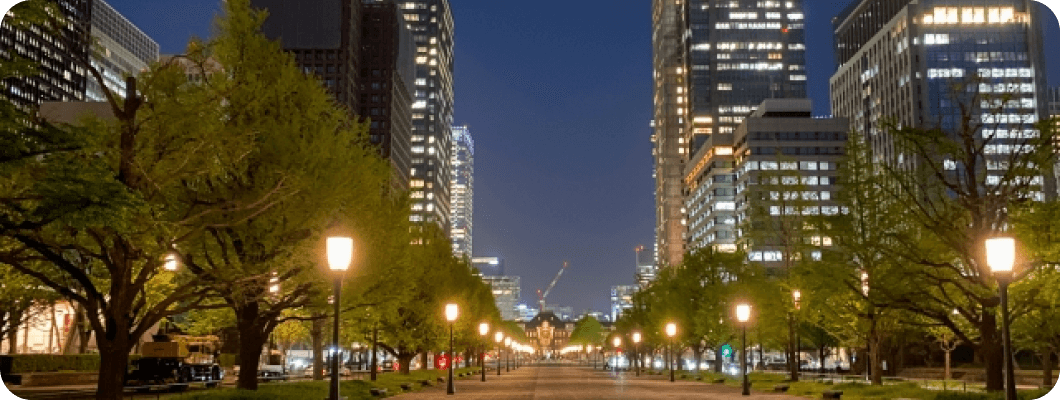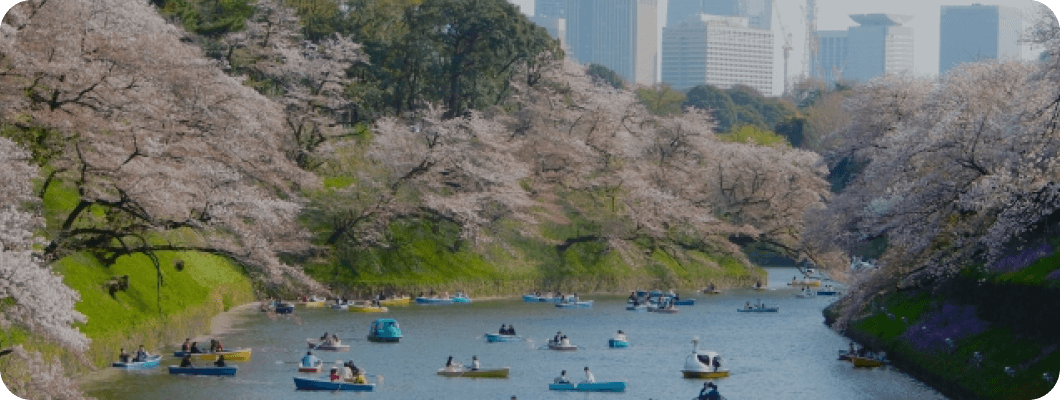
NEWS

Differences between Japanese and Asians ②
BLOG

The number of foreign visitors to Japan continues to increase. The majority of them are of Chinese and Korean descent. Can you guess which country they are from just by their appearance?
In this issue, we will give you a hint on how to tell them apart. I will also tell you their characteristics.
This is our own point of view, so please read it as if it were an image! Let's begin!
Hong Kong
Overall, the image is urban in East Asia. Clothing is on the cooler side.
We don't think they are much different from people in mainland China, but many of them have Southeast Asian looks. I often see a combination of boyish girls with short hair and sweet fashion. Is such a way of being in fashion? Anyway, there seem to be a lot of impatient “fast walking” men. Is this related to the high population density? I am also concerned about the unusually high speed of escalators on the subway.
Individualism
For example, while Japanese people prioritize “harmony,” Hong Kong people are all about the “individual. They also take pride in their work, and while they work professionally within the scope of their work, they basically do not do anything outside the scope of their work.
Hong Kong people prioritize their private life.
Hong Kong people value their private time and family. They will give private reasons for refusing a job without hesitation. And this is their natural right.
A city full of business people who think they are the best in the world
Although time can be a little on the loose side,
I believe that Hong Kong people are among the best in the world in terms of work efficiency, business sense, and the ability to speak two or three languages in an environment where it is taken for granted. The international business skills and speed of business nurtured in Hong Kong, which is also known as the financial capital of Asia and where people from all over the world have gathered, are outstanding.
Taiwan
Surprisingly, there is a mix of fair-skinned, dark-haired people and people with Southeast Asian faces. Japanese culture is deeply rooted in the country, and most people are Japanophiles. Clothing is neither flashy nor plain, and there is no showiness. It is similar to Japan in that way. Both men and women are cheerful, friendly, and open-minded. They are passionate and romantic (or maybe not?). They also seem to be passionate and romantic (or maybe not?). There are some controversies about the women's “sweet” way of speaking and their “surikko” temperament, but I think that's fine. The ethnic minority costumes are unique and nice. They dance and sing very well.
Bright and friendly personality
Taiwanese people are cheerful and friendly. In many cases, they will smile and talk to you openly even when you meet them for the first time.
They are also kind and have a strong spirit of mutual help, and tend to extend a helping hand when they see someone in trouble. They are also very curious about foreigners, and have a particular affinity and admiration for Japanese people.
They value their families.
Taiwanese people value their families. Family is taken in a broad sense, including not only blood relatives, but also relatives and friends. Because they value their bonds, they take time to spend together and respect the opinions of family members.
They also do not miss family events. For example, during the Lunar New Year and Mid-Autumn Festival (one of the most popular festivals), they gather with their families for meals and celebrations.
Punctuality
Taiwanese people tend to be punctual. You may find that they are often late or cancel appointments. Punctuality may be difficult because of their optimism and lack of planning.
Self-loving
Taiwanese like themselves and are assertive. They are confident in their appearance, abilities, and hobbies. They are also willing to try and enjoy things they are interested in.
For this reason, posting selfies and videos on social networking sites is very popular in Taiwan. The people are also very curious, showing a strong interest in beauty, fashion, gourmet food, and travel.
Straightforward and assertive
Taiwanese are straightforward and firmly assertive. They will clearly speak up and express their thoughts, feelings, and opinions.
Taiwanese people value communication by expressing themselves honestly.
Caring and gentle
Being caring and kind is another characteristic of Taiwanese people. They show care and consideration not only to their own family and friends, but also to strangers and foreigners.
For example, when eating a meal in Taiwan, one may ask, “吃飽了沒? (沒沒” (Are you full?) is a common question in Taiwan. (Are you full?) is a common question in Taiwan. This is an expression of concern for the health and happiness of the other person. When they see people who are lost or in trouble, they willingly help them.
Many Taiwanese are pro-Japanese
Taiwan is a country with many pro-Japanese people. Japan and Taiwan have a close relationship both historically and economically, but also culturally.
Many Taiwanese are interested in Japanese pop culture such as anime, TV dramas, and music. For this reason, many Taiwanese are learning Japanese, and many Taiwanese travel to Japan. Many Taiwanese speak Japanese and are familiar with aspects of Japanese culture and Japanese tourist attractions.
Japan
The white shirt, necktie, and dark suit that symbolize the Japanese male “salaryman” are still in place. The impression is that many men have long hair and do not show their foreheads. Young men have long, crumpled brown hair, are tall and slender, and often carry a body bag. They do not carry a bag and have their wallets in their back pockets, which is typical of a safe major country. Japanese women, regardless of age, wear proper makeup and sun protection, and a hat and parasol are essential items. They carry their travel bags at an angle and have a generally “loose” appearance. She is polite and calm, but is notoriously shy.
Mild-mannered and unassertive.
The Japanese are said to be pacifistic and mild-mannered, with a dislike of conflict.
Even when they disagree with others or have different values, the Japanese have the habit of adapting to others without asserting themselves.
This is due to the educational environment that emphasizes cooperation, which has fostered values such as “avoiding fights and disputes even if it means stifling one's own opinions a little” and “trying not to disrupt the atmosphere by conforming to the opinions of others.
Respect for courtesy and manners
Many foreigners have an image of “Japanese people are well mannered” and “polite.
This is probably due to the fact that they are taught from an early age to say thank you and apologize properly, and also because of the unique Japanese culture of clear hierarchical relationships, such as using honorific expressions for older and superior people and customers.
Many foreigners are also surprised by the good manners of Japanese people, who say, “In other countries, it is an everyday occurrence that some people lose patience and skip their turn in line,” whereas Japanese people stand in a straight and proper line and there are no people who skip their turn or complain about it.
Be considerate of others
One of the characteristics of Japanese people that is hard to find in other countries is that they read other people's feelings and situations and pay attention to them to make them feel comfortable.
Especially in Europe and the U.S., there is a strong culture that “words out of your mouth are everything, and you read and understand the other person's feelings from those words.
In Japan, on the other hand, there is a culture of trying to understand the true feelings of the other person from his/her situation and facial expressions, thinking, “The other person may not be saying it out loud, but he/she probably wants me to do this,” or “He/she is saying this, but I think he/she is really thinking this.
Perfectionism
Japanese people are sometimes thought of as “perfectionists” because they try to do everything exactly according to the rules and without mistakes.
For example, perfectionism can be seen in the way trains are made to run on time to the minute and second, and in the way apologies are announced if trains are delayed even by one minute.
The optimistic attitude of “it's okay if you make a small mistake” is a characteristic of Japanese people.
Patience
One of the images that foreigners have of Japanese people is that they are patient and do not give up easily.
Until a decade ago, Japanese culture emphasized the “spirit of perseverance,” as seen in the “spo-ne” genre of TV dramas and anime.
Compared to other countries, many Japanese work until retirement at a single company, which shows that Japanese people do not give up easily, but always finish what they do.
Honne and tatemae
The phrase “honne to tatemae” is one of the most well-known Japanese words that many foreigners with a slight interest in Japan are familiar with.
To that extent, it probably means that the Japanese character of “what you say out loud and what you really think in your heart are two different things” is known throughout the world.
Some Japanese may think that this is born out of kindness to avoid hurting others or to make them feel good, but foreigners may have the impression that they do not know what they are really thinking or that they are lying.
Frequently acts in groups
Another characteristic of Japanese people is that they often act in groups, and when they act alone, they feel insecure about how they are viewed by others.
This is probably a habit born from school education, in which students are taught to act as a class unit from an early age.
On the other hand, there is also a tendency to worry about what others think of them, and to want to feel secure by belonging to some organization or group.
They are rather individualistic and may be considered strange by those from countries where they do not care about what others think of them.
Humility
Even when praised by others, Japanese people are humble enough to say, “That's not true,” or “I still have a long way to go.
In some foreign cultures, it is natural to accept compliments with an open and honest “thank you” when you receive them, but in Japan, if you do not take a humble attitude, people may think you are bragging or overconfident. Or, “Aren't you overconfident? If you are not humble in Japan, you may be perceived as “boastful” or “overconfident”.
Even in East Asia, where there seems to be little difference in appearance, there are many differences among countries. It is interesting.
We often hear foreigners say that it is difficult for them to distinguish between Asians and express their differences! I often hear people say, “I can't describe the difference between Asians and non-Asians.
Please use this as a reference for your own judgment.
We will move on to a new topic next week, so please look forward to it!
instagram
realestatejapan
PDF file









